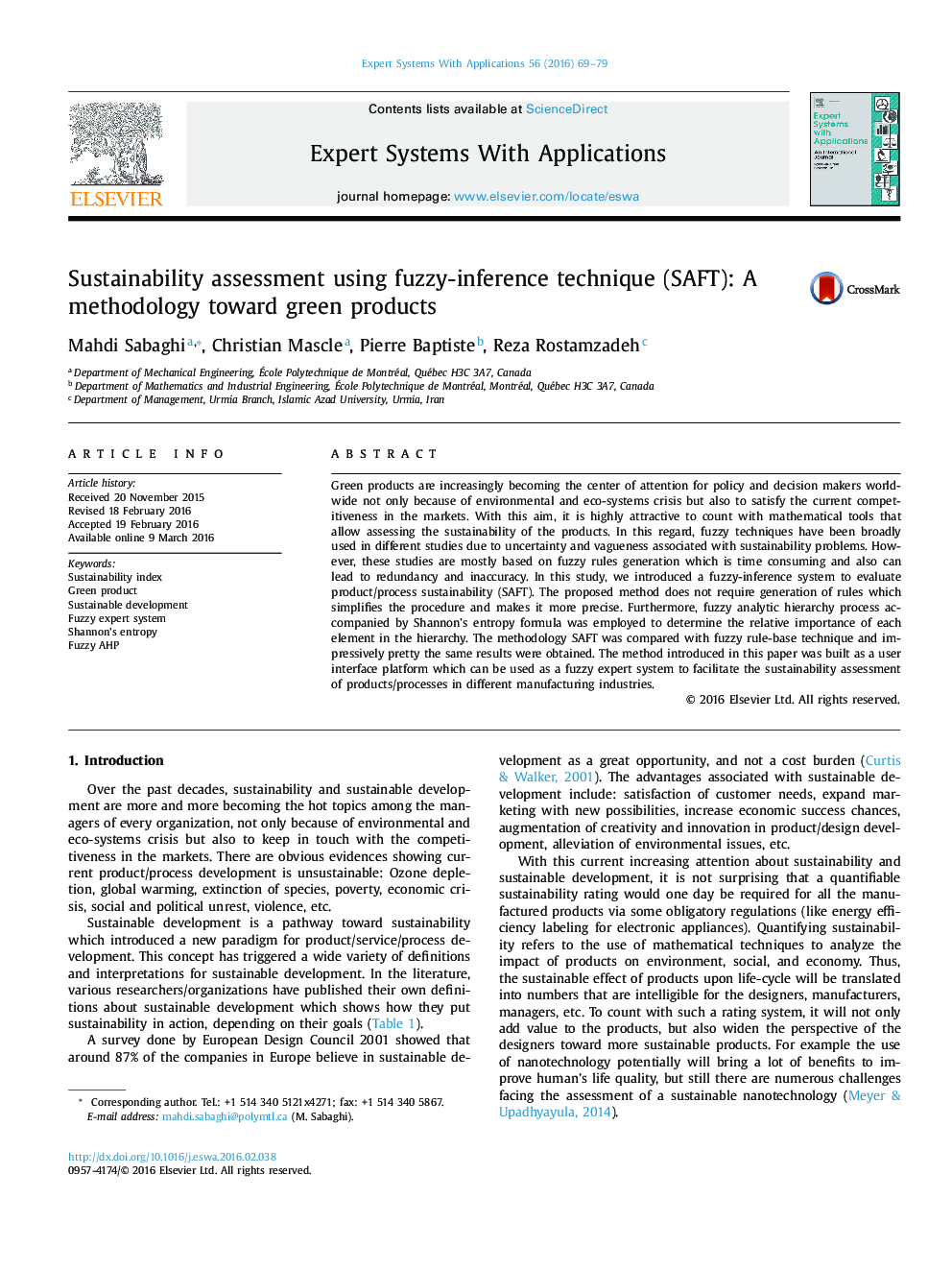| Article ID | Journal | Published Year | Pages | File Type |
|---|---|---|---|---|
| 382321 | Expert Systems with Applications | 2016 | 11 Pages |
•A fuzzy-inference method was introduced to evaluate product/process sustainability.•The proposed methodology does not require generation of rules.•A comparison with fuzzy rule-base technique was done.•Results were satisfactory and indicated the applicability of the proposed technique.
Green products are increasingly becoming the center of attention for policy and decision makers worldwide not only because of environmental and eco-systems crisis but also to satisfy the current competitiveness in the markets. With this aim, it is highly attractive to count with mathematical tools that allow assessing the sustainability of the products. In this regard, fuzzy techniques have been broadly used in different studies due to uncertainty and vagueness associated with sustainability problems. However, these studies are mostly based on fuzzy rules generation which is time consuming and also can lead to redundancy and inaccuracy. In this study, we introduced a fuzzy-inference system to evaluate product/process sustainability (SAFT). The proposed method does not require generation of rules which simplifies the procedure and makes it more precise. Furthermore, fuzzy analytic hierarchy process accompanied by Shannon's entropy formula was employed to determine the relative importance of each element in the hierarchy. The methodology SAFT was compared with fuzzy rule-base technique and impressively pretty the same results were obtained. The method introduced in this paper was built as a user interface platform which can be used as a fuzzy expert system to facilitate the sustainability assessment of products/processes in different manufacturing industries.
